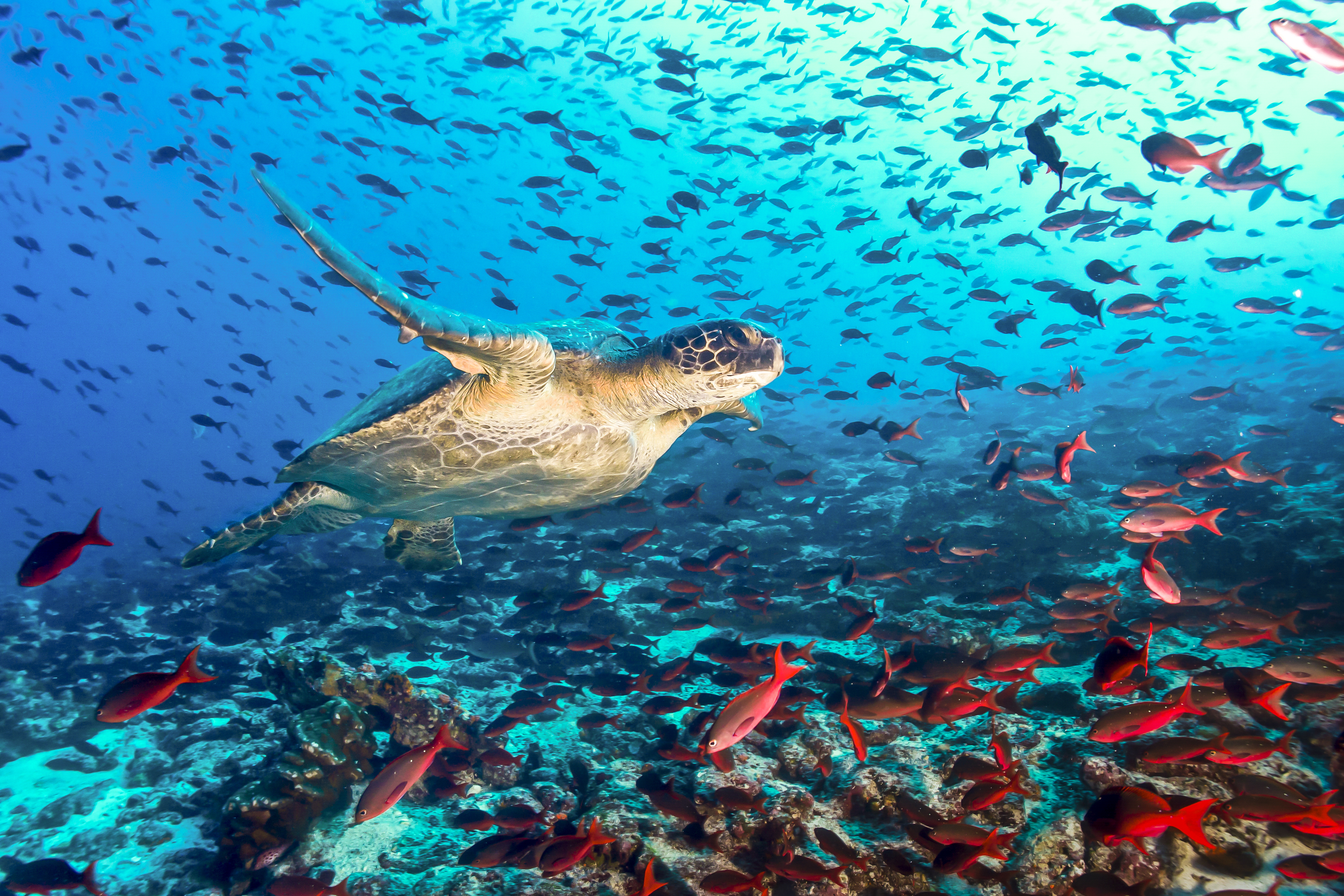
WHY STUDY SUSTAINABILITY IN ECUADOR?
Land in Ecuador’s capital, Quito, to begin your Experiment. There, you will explore the 16th-century gold-inlaid churches and colonial buildings of the Old Town. Your first excursion is to the equator, where you can stand on the spot where the Northern and Southern Hemispheres meet. Experience the diverse wildlife of the Mindo Nambillo cloud forest, then travel to the Andes (the world’s highest mountain range outside of Asia) for a weeklong homestay in the small city of Riobamba, where you will share daily activities such as sports, movies, and walks through town with your host family.
Continue on to the Amazon Basin to see the stunning waterfalls of Baños and get up close and personal with monkeys and exotic birds. Then, you’ll travel through the Galápagos Islands, the famous site of Charles Darwin’s research, where scientists and nature lovers flock to research and admire some of the most biodiverse islands in the world. You will have the incredible opportunity to visit the Charles Darwin Research Station, a biological research facility and active breeding center. There, you will learn about the conservation efforts that maintain and improve the ecology and biodiversity of these remarkable islands. Activities include island-hopping on a night cruise, snorkeling, swimming in lava grottoes, visiting turtle hatching sites, exploring mangrove forests and flamingo lagoons, and observing the courtship displays of rare tropical birds.
Throughout your Experiment, you’ll develop your Spanish language skills through interactive lessons with local teachers and conversations with locals and try your hand at preparing a typical Ecuadorian dish (such as ceviche or empanadas). You will participate in a community service project to support environmental efforts or the local community. Another adventure awaits as you hike from the first base camp to the second shelter of Chimborazo, an inactive volcano that rises 20,548 feet above sea level, and bike back down through a beautiful Andean landscape.
LEARN BY DOING
The Experiment’s programs are designed to build skills that will help you succeed. In Ecuador, you will learn:
TECHNICAL SKILLS
- Spanish language
- Community service certificate
INTERPERSONAL SKILLS
- Resourcefulness
- Intercultural communication
- Problem-solving
- Adaptability
- Relationship-building
KNOW BEFORE YOU GO
- This is a very active program involving outdoor activities such as hiking and biking. Water activities include boating, snorkeling, and lots of boat rides. The program moves throughout the country including 2- to 4-hour bus trips and a flight to Galápagos. Be prepared to carry your luggage up and down stairs and to lift it into overhead storage compartments.
- Ecuador has four distinct geographical and climatic zones: the coastal plain with a tropical climate; the Andean highlands at about 8,000 to 10,000 feet above sea level; the eastern jungle in the upper reaches of the Amazon; and the Galápagos Islands, 600 miles off the coast. Rainfall varies from constant rain to severe drought; weather is very unpredictable.
- Dairy/egg products are a staple so following a vegan or kosher diet may be challenging. Vegetarians should be aware that ”vegetarian” may mean the avoidance of red meat; fish or chicken may still be served.
- Access to the internet is limited and internet speeds and connectivity vary.
- The diverse personal and social identities of participants may, in part, shape their experience abroad. In-country partners will discuss cultural norms and the local context during orientation. Please read our approach to Diversity, Equity, and Inclusion for further information. All students will have a safe space within the program spaces and with the local staff and group leaders.
- The Experiment program structure is rooted in experiential learning and cohort-based learning. The participant group experience is a major source of learning for Experimenters and is facilitated by trained Experiment group leaders.


